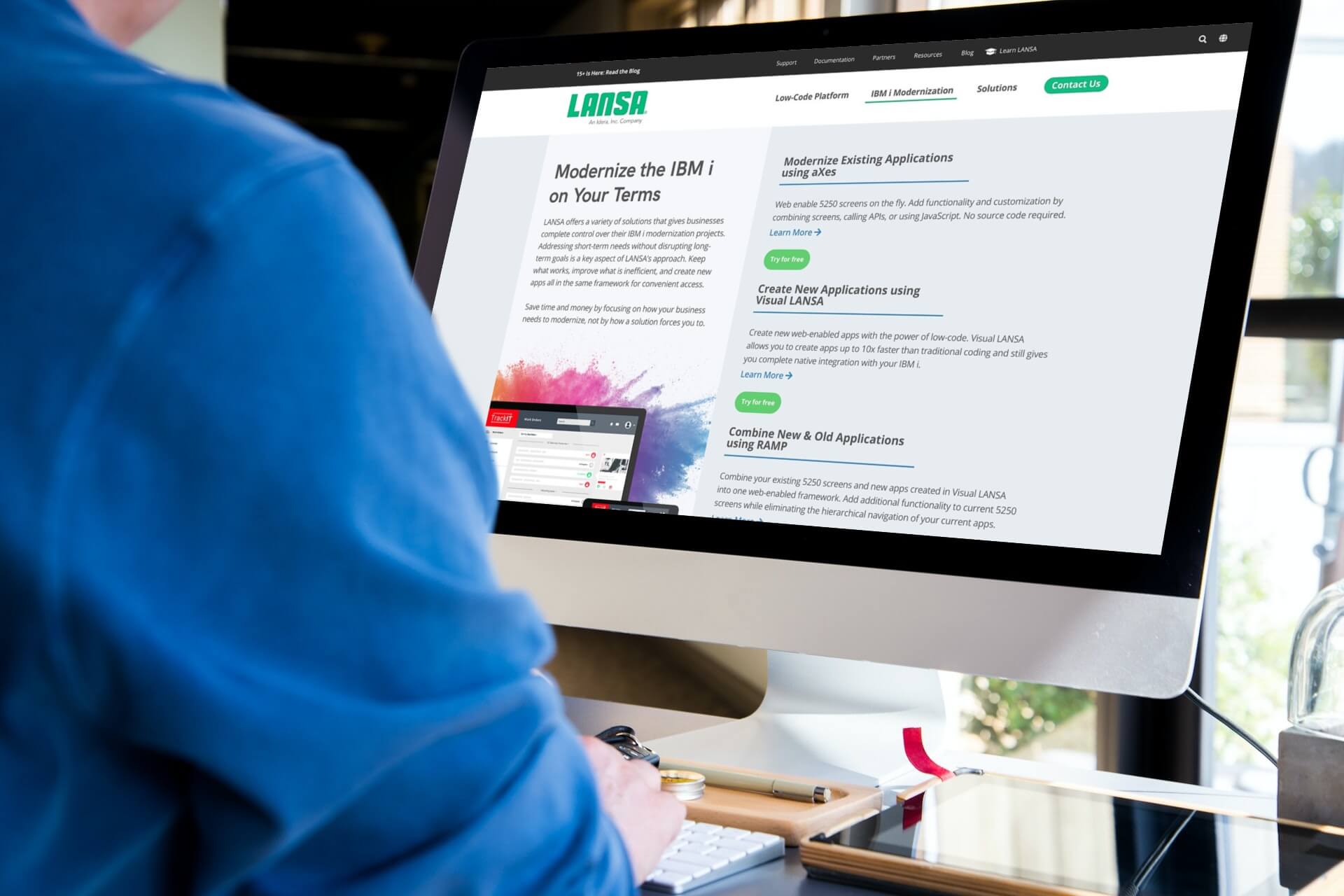Many of the world’s top 500 companies have relied on IBM i, correctly known as “IBM i,” for decades. They acknowledge its reliability, robustness, and security, alongside the many other perks associated with running on the IBMi platform. Others see the IBM i as legacy 5250 green screen systems that are limited to RPG, COBOL, and DB2. In reality, however, many popular opinions about this computing platform are simply myths.
This article takes you off the beaten track to some lesser-known truths about IBMi—from life before the IBMi to its “un limitations” today.
So without further ado, let’s dive in.
1. What is IBMi used for?
Most people associate IBMi (also known as “IBM i”) with RPG and COBOL applications. That said, you can do just about anything with it that you can do on any other platform. Because of its flexibility and stability, organizations often choose it for ERP and other mission-critical tasks. This is especially true for industries with heavy-data processing requirements, like manufacturing.
IBMi has also evolved into an increasingly popular cloud solution due to IBM cloud and other IBMi modernization solutions. Some solutions for IBM i are also low-code platforms.
Ultimately you can host anything on the IBMi. Your deployment method, however, depends on your use cases. For example, a manufacturing firm could use hybrid cloud solutions to gain extreme latency. On the other hand, a retailer might benefit from the scalability of a mobile and web-based application.
2. What is as400 called now?
In 1988, IBM launched the as/400, an easy-to-use computer series, with the os/400 as its operating system. Since then, IBM has released other modifications and versions of this combination. The first was to iSeries in 2000, then to IBM system i with i5/OS operating system in 2006, and lastly, to IBM power systems and the IBMi (IBM i) in 2008.
Learn more about the AS/400 modernization tools on this IBM cloud blog.
3. What came before as400?
Before the as/400, in 1978, IBM introduced the System/38, a mid-range computer for general business use, with the CPF operating system. In 1983, in a bid to create a more inclusive environment for small businesses, they released the System/36 before launching as/400 in 1988.
4. What is IBMi training?
IBMi training offers much-needed insights into the maintenance and administration of the IBM iSeries. This can include command-line utilities, work management, device maintenance, IBMi security, data recovery, etc.
5. How much does an IBM iSeries cost?
The costs of an IBM iSeries depend on your hardware and software options. For the P05 Power S814 machine, the price of a base license ranges from $7,985 to $11,985, depending on the number of users.
6. Is AS400 the same as iSeries?
Over the years, IBM has changed the name of its computing platform as a brand initiative. From as/400 to iSeries to System i. Although there have been some modifications with each name change, they all have their basis in the same as/400 and are often used interchangeably.
7. Why is AS400 still used?
Although as/400 systems are often criticized as legacy and outdated, many enterprises today run their mission-critical business operations on the IBMi (or IBM i). This is because most criticisms are far-fetched, and the reward of keeping the platform far outweighs the risk. Some of these rewards include;
- Being able to continuously leverage the many perks associated with the IBMi —reliability, security, integrated database, scalability, fast transaction speed, ability to handle data-heavy applications, etc.
- Avoiding the risk involved with the capital-intensive re-platforming.
Explore more information about all its features from our previous article on AS400 IBM.
8. What OS runs on iSeries?
The iSeries operating system has seen many changes over the years —from os/400 of as/400 to i5/OS of iSeries, and then to System i in 2008. Also, IBM integrated its System i and System p into IBM Power, which now supports IBMi, Linux, and AIX.
9. Is AS400 the same as a mainframe?
While many may consider the as/400 a mainframe, technically, it isn’t. Mainframes involve different components interacting within a network to form a massive computing platform. The as/400 isn’t that at all. Rather, it is a standalone system.
10. How old is IBM AS400?
IBM released its first server, System/38, in1978, which paved the way for the release of System/36 in 1983. On June 21, 1988, they launched the as/400, which accounted for both enterprises and small businesses.
11. What language is AS400 written in?
The majority of IBMi applications are in RPG (a frequent topic of IBM i modernization), those that aren’t are either COBOL, C, or C++.
How Can You Make the Most of Your IBMi Systems?
Gaining the most from your existing IBMi (otherwise known as IBM i) applications lies in the ability to empower end-users or employees with the tools and environment that’ll make their work easier.
You can start by adding a graphical user interface to provide a more compelling user experience. LANSA’s aXes allows you to quickly add modern UIs and web-enabled your IBMi applications within minutes. You can also add more functionality as your business time frame allows. For more information on how you can leverage your existing IBMi applications to thrive in your respective market, contact us.






0 Comments